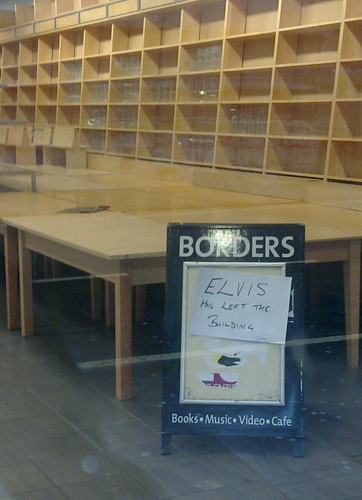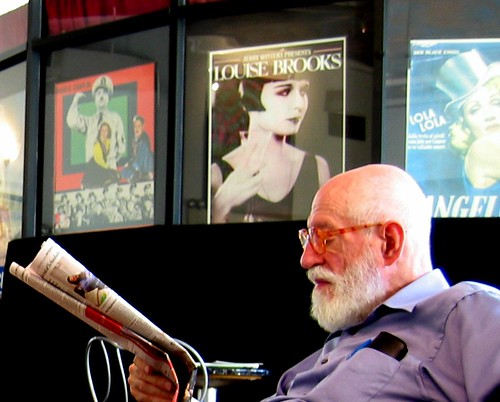So how healthy is the bookselling industry really?
On the day Borders filed for bankruptcy protection, Publishers Weekly put numbers to how much Borders owes just some of its top debtors:
Publishers are now on the hook for hundreds of millions of dollars, led by Penguin Group (USA) which is owed $41.1 million, followed by Hachette at $36.9 million, Simon & Schuster at $33.8 million, Random House at $33.5 million, and HarperCollins at $25.8 million.
But while that news demoralized many, on February 15—just one day before Borders declared bankruptcy—Publishers Weekly ran a very brief and very different news clip: “Bookstore Sales Fell 1.4% in 2010.” Citing preliminary estimates from the U.S. Census Bureau, the article reported that the total bookstore sales for 2010 equaled $16.50 billion. Yes, that’s billion. So while the headline seemed ominous, it could well have read: “Bookstore Sales Hold Steady, Slip Just 1.4% in 2010.”
For the record, the “total bookstore sales” included anything and everything that might go past the register at a book store, including calendars, greeting cards, notebooks, magazines, digital reading devices, and more. But to put all this in perspective, according to several sources, the movie industry pulled in $10.65 billion in ticket sales last year. That’s just about $6 billion less than 2010’s bookstore sales.
Wouldn’t conventional wisdom have us believe that far more Americans visit movie theaters than bookstores? Aren’t we inundated with pundits bemoaning the death of books and reading in America? The data, however, just doesn’t support such claims.The national perception about books and reading might actually begin to change if publications such as Publishers Weekly begin publishing less melodramatic and more honest headlines such as “Bookstore Sales Outpace Movie Ticket Sales By Nearly $6 Billion.”
In the meantime, what are writers themselves going to do to demand that this self-perpetuating cycle of negativity be broken?



